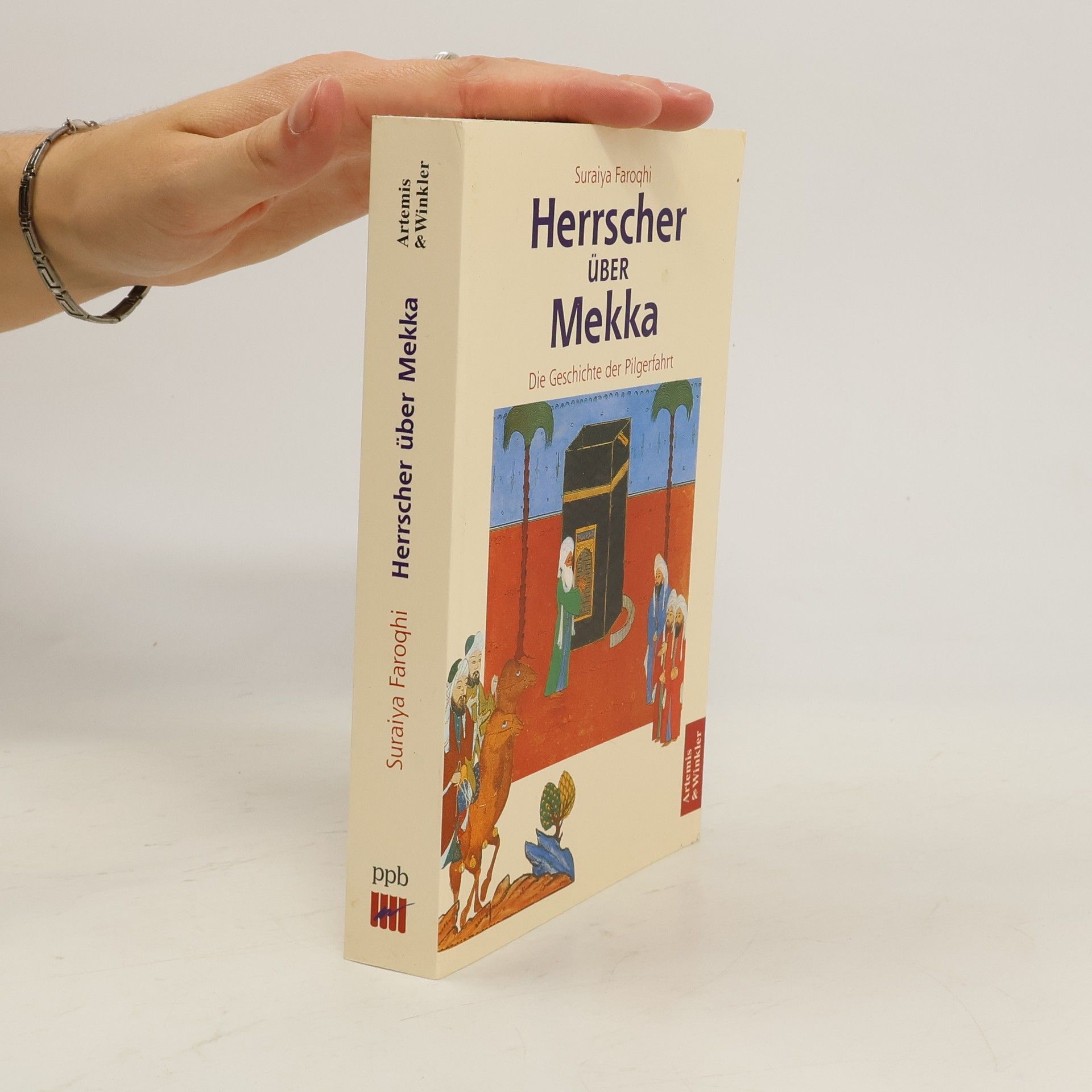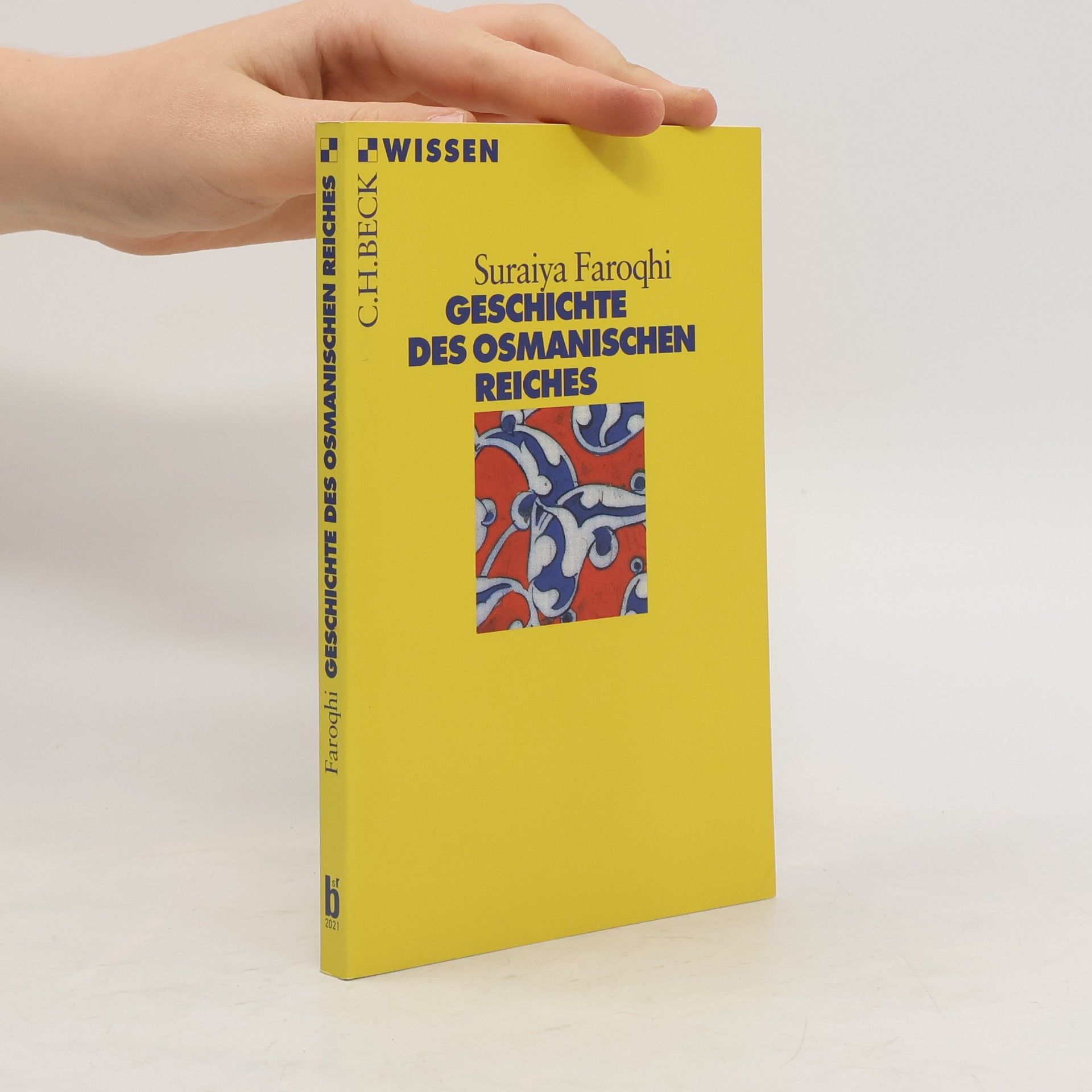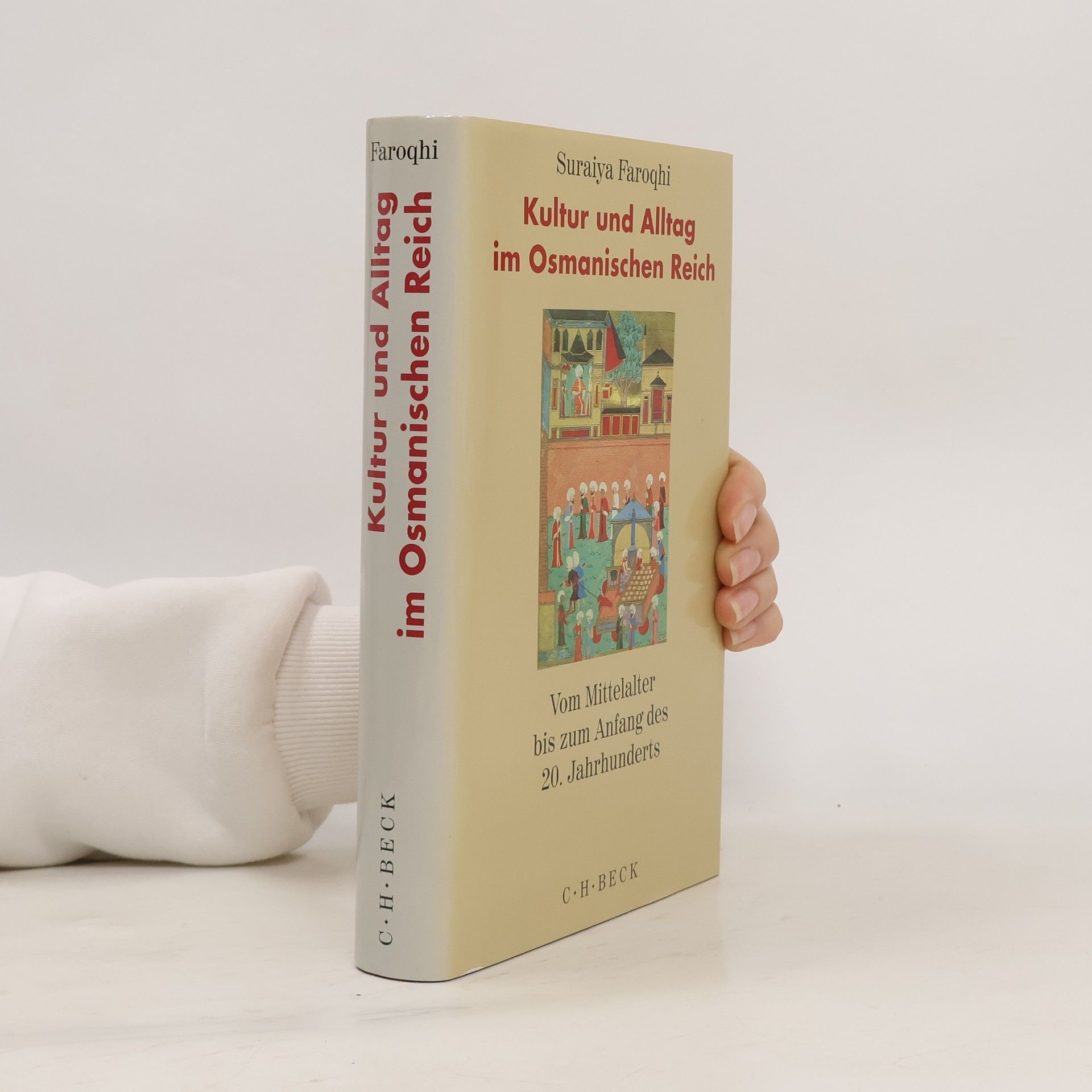Kultur und Alltag im Osmanischen Reich
- 402 Seiten
- 15 Lesestunden
Suraiya Faroqhi gilt als eine der bedeutendsten Wirtschafts- und Sozialhistorikerinnen des Osmanischen Reiches. Ihre Arbeit konzentriert sich maßgeblich auf die osmanische Stadtgeschichte, Kunsthandwerk und die bisher unterrepräsentierte Welt der einfachen Menschen im Reich. Faroqhi ist bekannt für ihren unverwechselbaren Ansatz bei der Darstellung des osmanischen Alltagslebens und der öffentlichen Kultur. Ihre zahlreichen Publikationen zur vormodernen osmanischen Geschichte bieten einzigartige Einblicke in das Leben der Menschen dieser faszinierenden Epoche.






Suraiya Faroqhi schildert knapp, kenntnisreich und lebendig die Geschichte eines der mächtigsten Reiche des späten Mittelalters und der Neuzeit, das noch zu Ende des 19. Jahrhunderts das gesamte Gebiet der heutigen Staaten Türkei, Irak, Syrien, Libanon, Israel sowie Teile Griechenlands umfaßte. Die Darstellung folgt der Chronologie der politischen Geschichte vom 14. Jahrhundert bis zur Auflösung des Reiches nach dem Ersten Weltkrieg und bezieht dabei die Geschichte von Wirtschaft, Gesellschaft und Kultur überall gleichwertig ein. Achtung: Aus lizenzrechtlichen Gründen dürfen die Abbildungen in diesem eBook leider nicht wiedergegeben werden.
A major contribution to Ottoman history, now published in paperback in two volumes.
Suraiya Faroqhi's scholarly contribution to the field of Ottoman history has been prodigious. Her latest book represents a summation of that scholarship, an introduction to the state-of-the-art in Ottoman history. In a compelling exploration of the ways that primary and secondary sources can be used to interpret history, the author reaches out to students and researchers in the field and in related disciplines to familiarise them with these documents. By considering both archival and narrative sources, she explains why they were prepared, encouraging her readers to adopt a critical approach to their findings, and disabusing them of the notion that everything recorded in official documents is necessarily true! While the book is essentially a guide to a complex discipline for those about to embark upon their research, the experienced Ottomanist will find much that is original and provocative in its sophisticated interpretation of the field.
Demonstrates that there was no iron curtain between the Ottoman and other worlds but rather a long-established network of diplomatic, financial, cultural and religious connections. This book is based on a study of several sources, including diplomatic records, travel and geographical writing, as... číst celé
House Owners and House Property in Seventeenth-Century Ankara and Kayseri
The book explores the social, economic, and cultural dynamics of two contrasting towns in Anatolia, utilizing historical documents from the kadi registers. It provides insights into local governance, community interactions, and the impact of regional differences on daily life. Through detailed analysis, the study highlights the unique characteristics and historical significance of each town, offering a rich understanding of Anatolian society in a specific historical context.
In the Ottoman Empire, a clear hierarchy existed among subjects, with adult Muslim males considered 'first-class' and all others, including Muslim boys and women, classified as 'second class.' While elite women had certain privileges, their lives were still fraught with challenges similar to those faced by ordinary women, such as risks associated with pregnancy and disease. This book explores the agency of women from various backgrounds, integrating their experiences into the broader social and political history of the Ottoman Empire from the early-modern period to its dissolution in 1918. Suraiya Faroqhi organizes the narrative into thematic chapters that focus on urban women, family life, work, slavery, education, and survival during wartime. It highlights key sources necessary for understanding how women navigated social, legal, and economic constraints, emphasizing family relations, work, and charity. As the first comprehensive social history of women in the Ottoman Empire, this work includes a timeline and an extensive further reading section, making it essential for scholars and students interested in Ottoman history and the history of women in the Middle East.